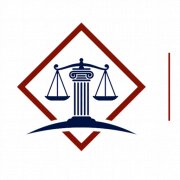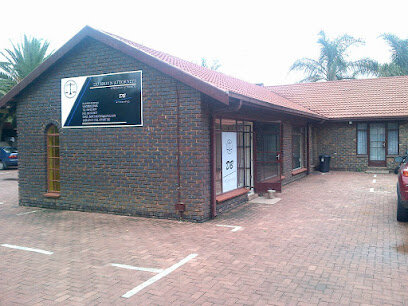Best Whistleblower & Qui Tam Lawyers in Vanderbijlpark
Share your needs with us, get contacted by law firms.
Free. Takes 2 min.
List of the best lawyers in Vanderbijlpark, South Africa
About Whistleblower & Qui Tam Law in Vanderbijlpark, South Africa
Whistleblower and Qui Tam law in Vanderbijlpark, South Africa, acts as a cornerstone of public interest protection. Whistleblowing refers to the act of reporting unlawful acts, corruption, or serious workplace misconduct by an employer or third party. In the context of South Africa, this is mainly governed by the Protected Disclosures Act, which seeks to offer protection for employees and workers who blow the whistle in good faith.
While the term "Qui Tam" is most commonly associated with U.S. law, in South Africa similar concepts exist under anti-corruption frameworks and laws for holding individuals or companies accountable for defrauding the government. Whistleblowers in Vanderbijlpark who report misconduct may be entitled to certain protections, particularly if their disclosure is made in the public interest and follows the legal procedures.
Why You May Need a Lawyer
Navigating the complexities of whistleblower and related legislation can be daunting. Legal representation may be essential in scenarios such as:
- Reporting corruption, fraud, environmental violations, or serious safety issues in the workplace.
- Experiencing retaliation or victimization after making a protected disclosure.
- Unsure about whether your concern qualifies as a protected disclosure under the law.
- Pursuing compensation or remedies after being dismissed or demoted for whistleblowing.
- Seeking confidential advice before coming forward with sensitive information.
- Interacting with law enforcement or regulatory agencies during the investigation of your disclosure.
- Clarifying your rights and obligations as an employee or public official considering making a report.
A lawyer can ensure your actions are safeguarded within the law and that your rights are protected throughout the process.
Local Laws Overview
The main legislation governing whistleblower protection in South Africa, including Vanderbijlpark, is the Protected Disclosures Act 26 of 2000 and subsequent amendments. Key aspects include:
- Protected Disclosures: The Act offers legal protection to employees who make disclosures about unlawful or irregular conduct by employers or fellow employees.
- Good Faith Requirement: To qualify for protection, the disclosure must be made in good faith and in accordance with prescribed channels - usually internally first, then to relevant authorities if necessary.
- Prohibition of Occupational Detriment: Employers may not subject whistleblowers to occupational detriment (like dismissal, harassment, or demotion) for making protected disclosures.
- Remedies: The Act allows for recourse through the Commission for Conciliation, Mediation and Arbitration (CCMA), Labour Court, or civil action if retaliation occurs.
- Confidentiality: The identity of whistleblowers should be kept confidential as far as possible to protect them from victimization.
- Reporting Channels: There are specific channels and procedures to follow to ensure the disclosure qualifies for legal protection.
Further, the Prevention and Combating of Corrupt Activities Act and various sector-specific regulations may be relevant, depending on the type of wrongdoing reported.
Frequently Asked Questions
Who can make a protected disclosure under South African law?
Any employee, worker, or contractor can make a protected disclosure when they have information about serious misconduct, corruption, or illegality within an organization.
Are whistleblowers in Vanderbijlpark protected from retaliation?
Yes, the Protected Disclosures Act prohibits employers from retaliating against employees for making a protected disclosure in good faith using the proper channels.
Does South Africa offer financial rewards for whistleblowers like the United States?
Currently, South African law does not offer financial incentives or rewards for whistleblowers in the same way that U.S. Qui Tam actions do.
What are considered occupational detriments?
Occupational detriments include dismissal, suspension, demotion, loss of benefits, intimidation, harassment, or any adverse changes to conditions of employment after blowing the whistle.
How do I formally report wrongdoing to ensure I am protected?
Follow your employer’s internal whistleblowing policy first. If the issue is not resolved or if you fear reprisal, escalate to the relevant external authority. Document all steps for evidence.
Do whistleblower protections apply to private sector employees?
Yes, the Protected Disclosures Act applies to both public and private sector employees in South Africa.
Can I make an anonymous disclosure?
While you can attempt to report anonymously, legal protections and effective follow-up are best ensured when your identity is known to the authorities. Confidentiality is generally maintained.
What should I do if I experience retaliation after making a protected disclosure?
Consult a legal professional immediately. You may approach the CCMA or Labour Court for remedies or reinstatement.
Is there a risk to my professional reputation if I blow the whistle?
Although legal protections are in place, there may still be risks. Having legal advice and maintaining documentation can help safeguard your interests.
What kinds of misconduct qualify for whistleblowing?
Corruption, fraud, environmental harm, safety violations, health hazards, discrimination, and gross mismanagement of funds are common types of misconduct that may be reported.
Additional Resources
Here are some resources and organizations that can provide support and further information for individuals considering whistleblowing in Vanderbijlpark:
- South African Human Rights Commission (SAHRC): Provides information and support for human rights-related disclosures.
- Public Protector South Africa: Investigates complaints about public sector misconduct, maladministration, and abuses of power.
- Corruption Watch: A non-governmental organization offering support, anonymity, and advocacy for whistleblowers.
- Commission for Conciliation, Mediation and Arbitration (CCMA): Handles labour disputes and issues relating to occupational detriments.
- South African Police Service (SAPS): For criminal complaints related to fraud and corruption.
- Legal Aid South Africa: Provides legal assistance to those who qualify.
Next Steps
If you believe you have witnessed misconduct or wrongdoing and are considering a whistleblowing disclosure in Vanderbijlpark, it is important to proceed cautiously and thoughtfully:
- Document your concerns, including dates, times, and evidence related to the wrongdoing.
- Seek confidential legal advice to ensure your report qualifies as a protected disclosure under South African law and to understand the potential risks and remedies.
- Familiarize yourself with your employer’s whistleblowing policy and the correct reporting procedures.
- Consider reaching out to supportive organizations if you feel unsafe or require independent guidance.
- If you experience negative consequences after making a report, consult a labour law attorney or approach the CCMA as soon as possible.
Taking action as a whistleblower is a courageous step. Ensuring you have the right legal support and information will help protect your rights and contribute to greater accountability and integrity within your community and workplace.
Lawzana helps you find the best lawyers and law firms in Vanderbijlpark through a curated and pre-screened list of qualified legal professionals. Our platform offers rankings and detailed profiles of attorneys and law firms, allowing you to compare based on practice areas, including Whistleblower & Qui Tam, experience, and client feedback.
Each profile includes a description of the firm's areas of practice, client reviews, team members and partners, year of establishment, spoken languages, office locations, contact information, social media presence, and any published articles or resources. Most firms on our platform speak English and are experienced in both local and international legal matters.
Get a quote from top-rated law firms in Vanderbijlpark, South Africa — quickly, securely, and without unnecessary hassle.
Disclaimer:
The information provided on this page is for general informational purposes only and does not constitute legal advice. While we strive to ensure the accuracy and relevance of the content, legal information may change over time, and interpretations of the law can vary. You should always consult with a qualified legal professional for advice specific to your situation.
We disclaim all liability for actions taken or not taken based on the content of this page. If you believe any information is incorrect or outdated, please contact us, and we will review and update it where appropriate.









